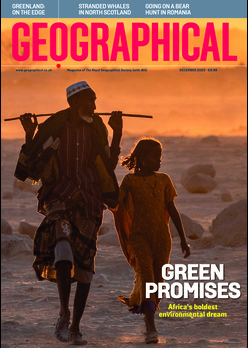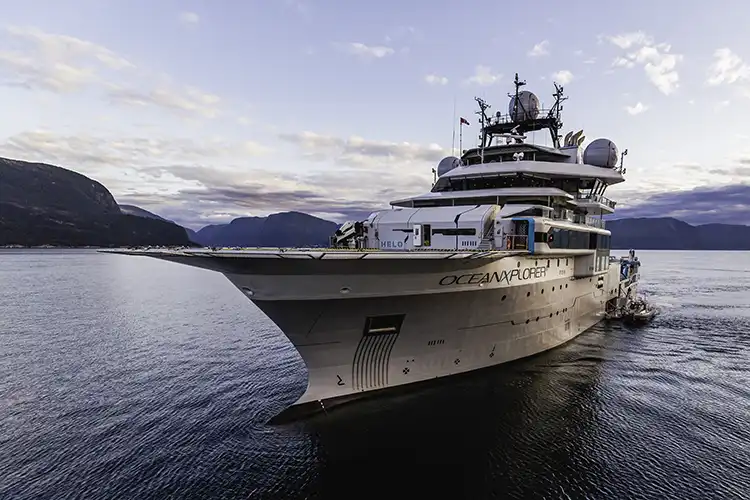
Mattie Rodrigue, science director at OceanX, shares what she’s learned in the last five years – and what this means for the future of our oceans
From the icy expanses of the Arctic to the coral reefs of the tropics, our oceans are facing unprecedented challenges. But amidst the growing concerns about climate change and environmental degradation, there are beacons of hope, individuals dedicated to unravelling the ocean’s mysteries and safeguarding its future.
One such individual is Mattie Rodrigue, science program director at OceanX.
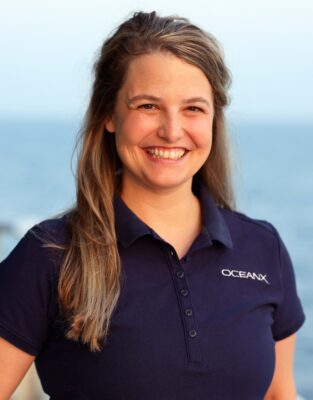
OceanX is a pioneering ocean exploration and media organisation with a mission to explore and protect the world’s oceans, and to share its discoveries with the world. ‘OceanX was really built on a couple of core tenants: science driving everything that we do, media telling the story of the science, and the people doing the science,’ Rodrigue explains. ‘And education, which is trying to inspire the next generation of ocean explorers.’
Founded by Ray Dalio and his son, Mark Dalio, in 2018, the non-profit was the first to film a giant squid in the deep oceans and has discovered new marine species in ocean habitats around the world. Its flagship vessel, OceanXplorer, is a floating laboratory equipped with state-of-the-art technology that allows researchers to study and better understand the ocean’s depths.
Related reads:
Rodrigue’s role involves designing OceanX’s scientific missions and putting them into operation, while working closely with host nations, intergovernmental organizations, universities, and NGOs. ‘I’m a fishery scientist by training, but now I do this sort of little-bit-of-everything role,’ she says. She’s learned a lot about technology along the way, and helped to build all the science infrastructure for the vessel with the OceanX technical team. ‘It’s all about how we make each mission as impact-driven mission possible. Science never sleeps, so we want to get the most out of the vessel in the time that we are there, 24/7.’
That said, Rodrigue cites the people she works with as the most interesting part of her job. ‘It’s the opportunity to work with local scientists to try to really understand what it is that they do,’ she explains. ‘How do we protect and conserve and maintain biodiversity, or increase biodiversity with protections and different tools for protection, while also sustaining a popular human population that’s growing and is also really dependent on the oceans, and often the oceans for a food source?’
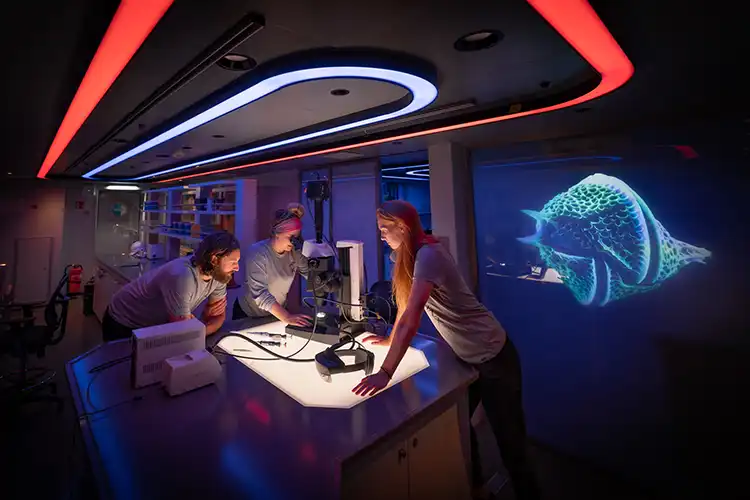
Rodrigue’s work at OceanX has placed her at the forefront of vital oceanographic research, witnessing firsthand the dramatic changes occurring in our planet’s marine environments. One particularly impactful expedition took her to Svalbard, where she witnessed the rapid retreat of the Arctic’s ice first-hand. ‘While we were there, this huge area of ice that one of the glaciologists had been keeping an eye on for about a month with satellite imagery just completely vanished, she recalls. ‘It was a stark reminder about how quickly things are changing due to the climate crisis.’
Beyond observing environmental shifts, Rodrigue has also contributed to tangible conservation efforts. In the Azores, she collaborated with a deep-sea research team to establish a marine protected area. OceanX’s support, which included mapping of deep-sea coral reefs and the tagging of megafauna, proved instrumental in bolstering the researchers’ decade-long campaign. ‘All of that data was shared, providing critical evidence that the local researchers needed to really drive home the message that these areas are special,’ she says. ‘Something that’s been really inspiring for me is that all of the data that we’re collecting are meant to be contributed to publiclly-accessible databases.’
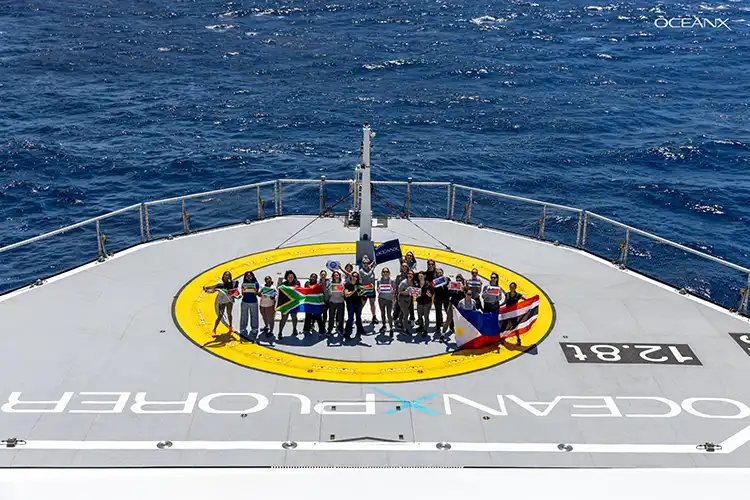
Currently, Rodrigue and the OceanX team are working off the coast of Namibia, one of many stops on their circumnavigation of the continent for the ‘Around Africa expedition’. Since 30 January, the expedition has been rewriting our understanding of Africa’s coastal waters, meticulously mapping unknown habitats and securing crucial biodiversity data, with the first-ever survey of a previously unexplored seamount south of Walter’s Shoal, along the Madagascar Ridge, marking a pivotal discovery.
‘One of the core components of the expedition has been capacity building and development, so bringing on international early career ocean professionals and students, and training them on different methods in oceanographic research that they may not have access to in their own countries or at their home institutions,’ explains Rodrigue. ‘They can then go back and transfer those skills to the other researchers.’ Global collaboration, she emphasises, is particularly important to the success of future science and conservation efforts.
Looking to the future, Rodrigue believes that technological advancements, such as underwater robots and AI, will play a crucial role in ocean exploration. However, she also stresses the importance of human experience. ‘I don’t think there’s ever going to be a substitute for physically bringing people, scientists and storytellers or filmmakers down into the ocean environment,’ she says. ‘People won’t care or act in support of something that they can’t feel, that they haven’t experienced.’ For those who feel overwhelmed by the vastness of the ocean and the scale of the challenges ahead, she offers some simple advice: ‘I think as long as people stay curious, stay engaged and keep learning new things about the ocean, the more likely it is that we’ll start to do things differently. Simply equipping yourself with knowledge can be a very empowering thing.’

